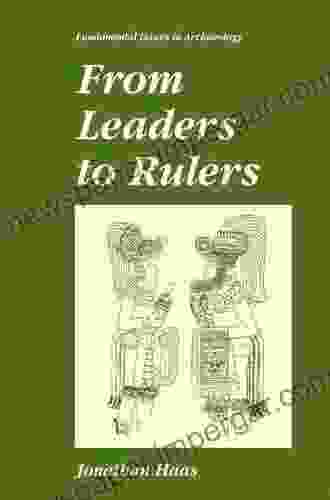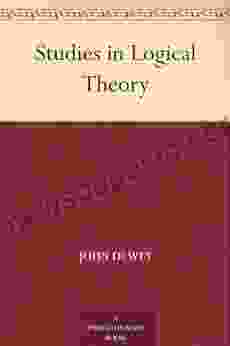From Leaders to Rulers: Unveiling the Archeological Tapestry of Ancient Leadership

The concept of leadership is an enduring enigma that has captivated the human imagination for centuries. From the earliest civilizations to modern-day societies, the ability to lead and influence others has been instrumental in shaping our world. In the realm of archaeology, the study of ancient leadership provides a unique window into the complexities of human organization and the transformative roles played by rulers.
4.4 out of 5
| Language | : | English |
| File size | : | 8599 KB |
| Text-to-Speech | : | Enabled |
| Screen Reader | : | Supported |
| Enhanced typesetting | : | Enabled |
| Word Wise | : | Enabled |
| Print length | : | 306 pages |
The book, "From Leaders to Rulers: Fundamental Issues in Archaeology," invites readers to embark on an enthralling journey through the archaeological evidence of leadership in ancient civilizations. Through meticulous research and captivating storytelling, the authors unveil the profound complexities of societal power dynamics, unravel the transformative roles of rulers, and discover the intricate foundations of human organization in the cradle of civilization.
The Dawn of Leadership
The origins of leadership can be traced back to the earliest human settlements, where individuals emerged to guide and organize their communities. Archaeological evidence from Mesopotamia, one of the world's oldest civilizations, suggests that leaders played a crucial role in coordinating large-scale projects, such as the construction of temples and irrigation systems.
In Egypt, the enigmatic pharaohs were both spiritual and political leaders, wielding immense power and influence over their vast kingdom. Elaborate tombs and monumental structures, such as the pyramids of Giza, serve as enduring testaments to their authority and the unwavering loyalty of their subjects.
The Rise of Complex Societies
As civilizations grew more complex, so too did the nature of leadership. In the Indus Valley Civilization, a sophisticated urban society flourished along the banks of the Indus River. Archaeological excavations have revealed evidence of a highly organized government system, with rulers overseeing a vast network of cities and trade routes.
In China, the Xia dynasty, established around 2070 BCE, marked the beginning of a long and illustrious tradition of centralized leadership. The Shang dynasty that followed left behind an impressive legacy of bronzeware and inscribed oracle bones, providing valuable insights into the political and religious practices of the time.
The Rulers of the Americas
Across the vast expanse of the Americas, ancient civilizations also developed distinct forms of leadership. The Maya of Mesoamerica, renowned for their advanced mathematics and astronomy, were ruled by a complex hierarchy of kings, priests, and nobles.
In the Andean region of South America, the Inca Empire emerged as a powerful centralized state. The Sapa Inca, or emperor, held absolute authority over a vast territory spanning thousands of kilometers, leaving behind an enduring legacy of stone cities, agricultural terraces, and an extensive road network.
Leadership and Social Change
The study of ancient leadership provides not only a glimpse into the past but also offers valuable insights into the nature of human organization and social change. Archaeological evidence reveals that rulers played a pivotal role in shaping their societies, from promoting economic growth to fostering artistic and intellectual advancements.
However, leadership could also be a double-edged sword. While some rulers used their power to benefit their people, others succumbed to the temptations of tyranny and oppression. The archaeological record provides sobering reminders of the fragility of power and the importance of checks and balances within society.
"From Leaders to Rulers: Fundamental Issues in Archaeology" is a captivating and thought-provoking exploration of ancient leadership. Through the lens of archaeological evidence, the authors illuminate the profound complexities of societal power dynamics, unravel the transformative roles of rulers, and discover the intricate foundations of human organization in the cradle of civilization.
This book is an essential resource for scholars, students, and anyone fascinated by the enduring enigma of leadership. Its insights into the origins and evolution of human governance offer valuable lessons for understanding the nature of power and the challenges of building sustainable and just societies.
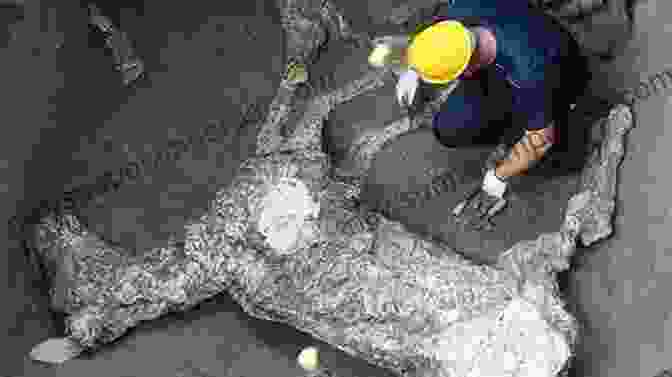
Archaeological excavations provide valuable insights into the nature of ancient leadership.
4.4 out of 5
| Language | : | English |
| File size | : | 8599 KB |
| Text-to-Speech | : | Enabled |
| Screen Reader | : | Supported |
| Enhanced typesetting | : | Enabled |
| Word Wise | : | Enabled |
| Print length | : | 306 pages |
Do you want to contribute by writing guest posts on this blog?
Please contact us and send us a resume of previous articles that you have written.
 Book
Book Novel
Novel Page
Page Chapter
Chapter Text
Text Story
Story Genre
Genre Reader
Reader Library
Library Paperback
Paperback E-book
E-book Magazine
Magazine Newspaper
Newspaper Paragraph
Paragraph Sentence
Sentence Bookmark
Bookmark Shelf
Shelf Glossary
Glossary Bibliography
Bibliography Foreword
Foreword Preface
Preface Synopsis
Synopsis Annotation
Annotation Footnote
Footnote Manuscript
Manuscript Scroll
Scroll Codex
Codex Tome
Tome Bestseller
Bestseller Classics
Classics Library card
Library card Narrative
Narrative Biography
Biography Autobiography
Autobiography Memoir
Memoir Reference
Reference Encyclopedia
Encyclopedia John Dimes
John Dimes Joseph Lofthouse
Joseph Lofthouse John F Hein
John F Hein Jonathan Allen
Jonathan Allen Jonathan Handel
Jonathan Handel John M Steele
John M Steele John Henry Eaton
John Henry Eaton John Mcmanamy
John Mcmanamy John James Audubon
John James Audubon John H S Lee
John H S Lee John S Ogrodniczuk
John S Ogrodniczuk Joseph Sassoon
Joseph Sassoon Jonathan Silver
Jonathan Silver John Gamble
John Gamble John Carroll
John Carroll John Seitz
John Seitz John Winthrop
John Winthrop Jon Cannon
Jon Cannon John Emmett
John Emmett John Cornwell
John Cornwell
Light bulbAdvertise smarter! Our strategic ad space ensures maximum exposure. Reserve your spot today!
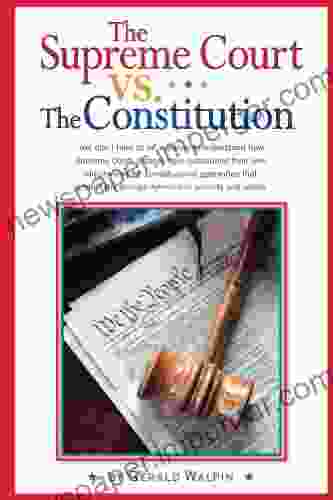
 Thomas PynchonUnveiling the Supreme Court's Constitutional Quandary: A Must-Read for Law...
Thomas PynchonUnveiling the Supreme Court's Constitutional Quandary: A Must-Read for Law... William GoldingFollow ·7.8k
William GoldingFollow ·7.8k Juan RulfoFollow ·17k
Juan RulfoFollow ·17k Gary ReedFollow ·4.8k
Gary ReedFollow ·4.8k Ted SimmonsFollow ·7.7k
Ted SimmonsFollow ·7.7k Zachary CoxFollow ·12.5k
Zachary CoxFollow ·12.5k Michael CrichtonFollow ·4.6k
Michael CrichtonFollow ·4.6k Peter CarterFollow ·18.8k
Peter CarterFollow ·18.8k E.M. ForsterFollow ·2.8k
E.M. ForsterFollow ·2.8k
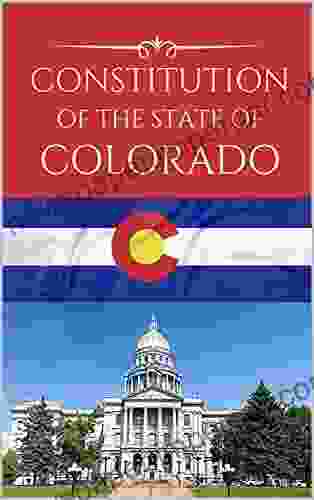
 Jake Powell
Jake PowellThe Constitution of the State of Colorado: A Legacy of...
Since its adoption in 1876, the...
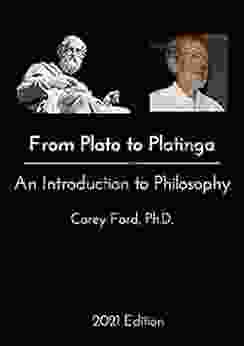
 Devin Ross
Devin RossFrom Plato to Plantinga: A Journey Through the History of...
Philosophy is the study of...

 Robin Powell
Robin PowellWords That Hurt, Words That Heal: The Power of Language...
Words are powerful. They can...

 T.S. Eliot
T.S. EliotTantalize Your Taste Buds with Over 90 Low-Carb Ethnic...
Indulge in a Culinary Adventure with "Over...
4.4 out of 5
| Language | : | English |
| File size | : | 8599 KB |
| Text-to-Speech | : | Enabled |
| Screen Reader | : | Supported |
| Enhanced typesetting | : | Enabled |
| Word Wise | : | Enabled |
| Print length | : | 306 pages |


